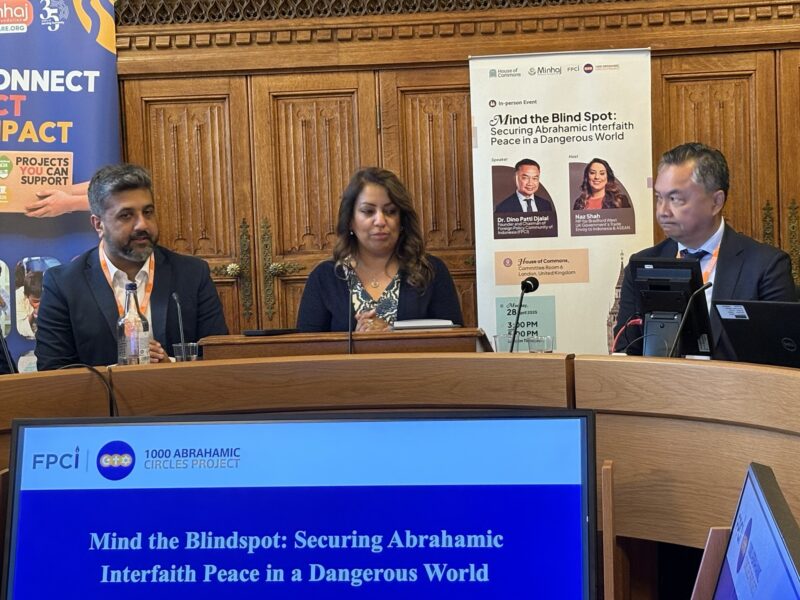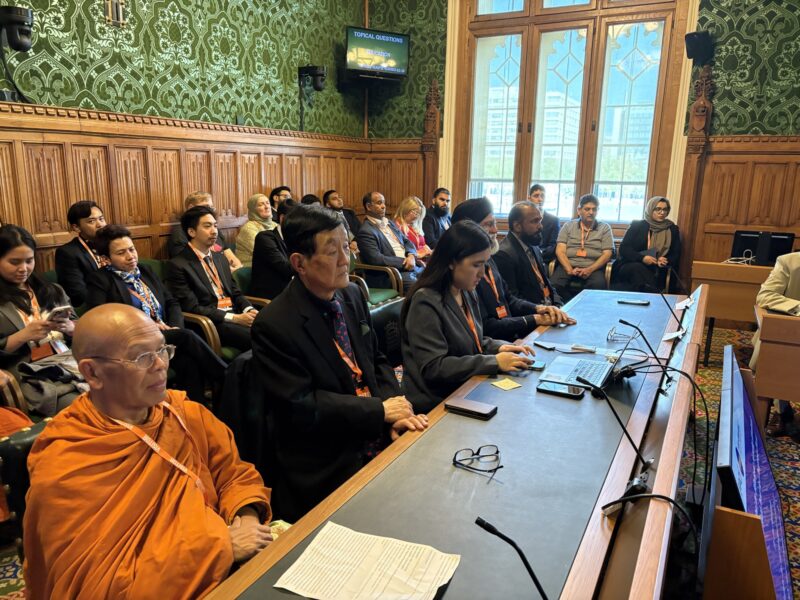On April 28, I had the privilege of participating in a symposium titled "Mind the Blind Spot: Securing Abrahamic Interfaith Peace in a Dangerous World", held in the House of Commons of the UK Parliament.
The title reflects the urgent need to recognize often-overlooked issues and foster peace among the Abrahamic faiths—Judaism, Christianity, and Islam—all of which trace their spiritual lineage to the prophet Abraham.
The event emphasized the value of solidarity among these three related traditions as a means to bridge global divisions in an increasingly turbulent world.
Keynote speeches were delivered at the event. One was by MP Naz Shah (center in the photo), a Labour Party representative of Pakistani descent who rose from a challenging upbringing. She was joined by Dino Patti Djalal, former Indonesian ambassador to the United States, whom I previously met at an international conference in Cambodia.
Also addressing the symposium was Paul Salahuddin Armstrong, co-director of The Association of British Muslims—the oldest Muslim organisation in the UK—and one of the leaders at the Global Imams Council. His deep thoughtful contributions highlighted the importance of inclusive dialogue and the spiritual common ground shared by the Abrahamic traditions and how it should be a cause for unity and bridge building.
The symposium was co-hosted by the House of Commons, the Minhaj Welfare Foundation, the 1000 Abrahamic Circles Project, and the Foreign Policy Community of Indonesia (FPCI), drawing participants from a wide range of backgrounds committed to interfaith understanding and cooperation.
I also enjoyed a meaningful exchange with a senior Thai Buddhist monk, head of a London temple. MP Afzal Khan (seen in Photo 3), also of Pakistani heritage, was present and engaged throughout the event. I hold deep admiration for the UK’s consistent efforts to promote faith dialogue through such initiatives.
A brief note on terminology: while “House of Commons” has traditionally been translated into Japanese as “Lower House,” many media outlets have now adopted the more accurate “Shomin-in” (literally, “House of the Commoners”). Similarly, “House of Lords” has increasingly been rendered as “Kizoku-in” (“House of Nobles”) rather than “Upper House.” Accurate translation is crucial in conveying the true meaning of institutions and concepts. There are many cases where English terms have been rendered into Japanese with different nuances, which, once accepted, can lead to misunderstanding—an issue that deserves greater attention.



